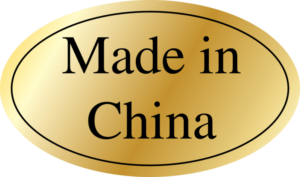Including services like US movies, music, and technology in tariff calculations, while seemingly unconventional, could have introduced several economic and strategic considerations. Firstly, it would have acknowledged the significant value and global reach of these US exports. The entertainment and technology industries are major contributors to the US economy and hold considerable cultural influence worldwide. Imposing tariffs, even if reciprocated, could have forced a reassessment of the value exchange and potentially created leverage in trade negotiations beyond tangible goods. It might have prompted discussions about intellectual property rights and digital trade practices in a more comprehensive manner.
Secondly, the inclusion of these sectors could have addressed concerns about the trade imbalance in a more holistic way. While the focus of tariffs has traditionally been on goods, the US enjoys a considerable trade surplus in services. Factoring in these exports might have provided a more accurate picture of the overall economic relationship with China and other trading partners. It could have opened avenues for negotiating fairer access for US cultural and technological products in foreign markets, potentially reducing non-tariff barriers and promoting greater reciprocity.
Thirdly, applying tariffs to these industries, even symbolically, could have served as a stronger signal regarding the importance of intellectual property protection. Piracy and counterfeiting of US movies, music, and software in some markets have long been a concern. While direct tariffs might be complex to implement and enforce in the digital realm, the threat of such measures could have added weight to demands for stronger IP protections and enforcement mechanisms in trade agreements. This could have better safeguarded the interests of US creative and innovative industries.
However, the omission of these services from tariff calculations also reflects practical challenges and strategic considerations. Imposing tariffs on digital goods and services can be complex due to their intangible nature and ease of cross-border transmission. It could also invite retaliatory measures that harm the competitiveness of these highly successful US industries in global markets. Furthermore, such tariffs might have been seen as a barrier to cultural exchange and the free flow of information, potentially undermining the soft power and global influence that US entertainment and technology currently enjoy.
In conclusion, while including services like US movies, music, and technology in tariff calculations presents some theoretical advantages in terms of acknowledging their economic value, addressing trade imbalances more comprehensively, and signalling the importance of IP protection, the practical challenges and potential negative repercussions likely outweighed these benefits. The focus on tangible goods in tariff disputes reflects the traditional mechanisms of trade policy and the complexities of applying such measures to the intangible realm of services and digital products.





